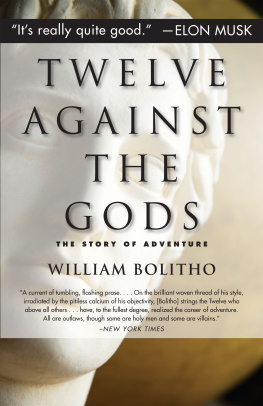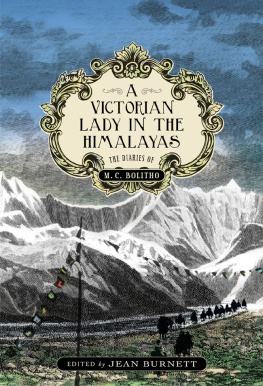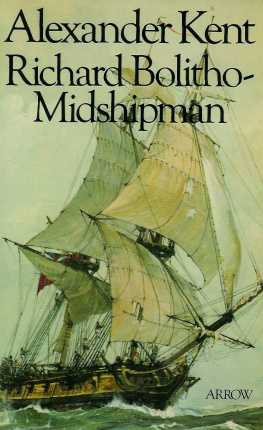
William Bolitho: A Memoir
by Walter Lippmann
When a man of Bolithos quality dies in his youth it is a subtle temptation to exalt him above his works. His friends who had sat with him and talked with him and apprehended the resources of his spirit must naturally find it hard not to dwell upon his promise at the expense of his achievement. They have felt how abruptly his time was limited, and it is in the nature of their affection that they should wish others to let faith in the man fill out the uncompleted record of his writings.
What affection and faith authorize, a gentle vanity quite readily exploits: I could find in my own feelings when the invitation came to me to write this memoir a disguised wish to imply that no mere reader of Bolitho can appreciate his stature, and thus to claim membership in the privileged circle of those who might truly say they understood him. This temptation to make a private cult is a strong one. For Bolitho was a radiant person. In his company ordinary things were transfigured, acquiring the glamour of mystery and great import. His talk had a quality which belonged to one who dwelt familiarly, so it seemed, with the hidden elements of mans life and with the infinite permutations of his affairs. In his presence it was easy to believe that one had a private revelation of those great concerns which in prosaic living seem verbal and remote; with him one walked quickly through portals, that are usually closed, into the statelier mansions of the soul. He was an eager guide. Whoever happened to be there, he took with him in his explorations, not pausing to ask whether his companion had the wit or the courage for such adventures. He was lavish in his talk. He belonged to what he once called the smaller class of those who are the givers rather than the takers, the fountains rather than the wells. He gave his immediate best profusely to anybody without reserve to economize his strength. His only defenses were his own unstinted gift of self-expression. It is said of Copeland of Harvard that he once remarked when he was asked whether he had enjoyed a tea party that if I had not been there I should have been very much bored. Bolitho in public gatherings was a little like that. Against the destructive impact of tedious autobiography and self-justification, he protected himself by seizing command of the discussion and transporting it quickly to regions where even the most debilitating bore was too uncertain of himself to do anything else but listen. Yet it was expensive. When Bolitho left New York for the last time, he was weary, not from the effort of his work, for being an artist, working refreshed him, but from the strain of keeping himself at concert pitch. He could not be insensitive, and he did not relax by taking things for granted; he had that unremitting responsiveness which is a faculty of genius and one of its burdens. In any company he took the floor at the beginning of the evening and held it until the end, thus saving himself and the rest of the party much weariness. Because he was so instantly aware of all who were present, seeing them not as silhouettes but in the round and often clairvoyantly, he made them all share the excitement which he had in exploring his own thoughts. They would go home feeling, not only that they had heard a brilliant performance, but that they had been rather uncommonly brilliant themselves. The echoes of his voice are still about us. Thus for a little time the spell of his presence cannot fail to obscure the less immediate expression in his printed works; and it is natural that only by making the special effort of reading his books as things divorced from the man who was in New York last year will his friends overcome the feeling that they knew a promising artist rather than a writer whose place is certain among those who have been mirrors to this age. I have read again as much of his work as I could lay my hands on, making the effort to read as one would read who had not known him: the selection of his essays for the World now republished under the title Camera Obscura; the earlier essays in the same vein called Leviathan; his Murder for Profit; and the manuscript of his play Overture which will have been produced in New York when this edition of Twelve Against the Gods appears. There are no certainties in these matters of taste and preference; I can express only my own conviction that among these writings there is much which will persist. What Bolitho would have done had he lived longer is another question. He would almost certainly not have gone on to do a little better and a little better the things he had already done. What he wrote up to the age of thirty-nine is the achievement of a young man in the full phase of his powers. The quality of his essays is intrinsic, authentic and entirely his own. Every paragraph he wrote has the signature of his own spirit upon it. Had he lived longer, I cannot believe that he would have gone steadily forward on the path he had taken; he would in the nature of things have taken some other path as his powers altered with maturity and his imagination took hold of new aspects of existence.
The essays we have are in themselves completely done, and they were done, too, as I happen to know, with unstinted care. Although most of them were written for newspapers and magazines, he never wrote with the sense that, because tomorrows column will be forgotten the day after, it is not prudent to spend too much time upon it. He was not content to skim the top of his mind in order to fill a column; he labored ultimately to satisfy an ideal audience, which was himself, devotedly in moods of intense concentration and passionate absorption. He respected his own powers too much to exploit them; the feeling that his talents were no mere personal possession precluded any compromise with the nave theory that a young writer can do potboilers now in order to gain time and leisure for masterpieces in his middle age.
The intense honesty of Bolithos work came from something besides the wisdom which knows that first rate abilities cannot stand the effects of doing second rate things, from something more than a conscientious wish to give full measure, from something more than that capacity to take pains which is often set down as the hall-mark of genius. His artistic integrity was an inseparable quality of the very special sort of artist that he was. He expended such unreserved energy on a daily column in a newspaper, or even on talk at a dinner table, because the circumstances of his life had rendered him peculiarly immune to the calculations of the careerist in an established society. He travelled through the world with very little baggage. The people he met, the books he read, the events he witnessed, did not encumber him. They were objects of interest, not possessions which clouded his faculties.
So among accumulating memories he preserved an invincible innocence of the eye. He did not come to see new things in remembered patterns, or to respond to them defensively and offensively as portents of his own worldly fortunes. Few of us are as free as this. We are for the most part immersed in our memories; they are the habits of our perception, they are standards of loyalty to which new experience must conform. Bolitho was unentangled. Thus his awareness often seemed preternatural. His mind was unmortgaged. He had no need to face two waystowards the verities and toward his loyaltiesbut he could seize experience, and making it wholly his own, manipulate what he perceived into gorgeous and original shapes.
For Bolitho was a visitor in this western civilization, and to the end he remained, in spite of his many friends, like the anonymous figure in Santayanas dialogue, a stranger in all his dwelling places. He was a British subject. He had been a British soldier. Yet he chose to live in Provence making excursions from Montfavet as his base to places like London, Paris, Berlin, New York and Chicago, where the latest manifestations of the western culture were manifesting themselves. He went to observe and to understand, never as an immigrant and settler.
Next page





